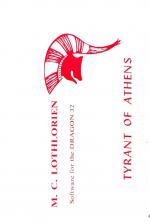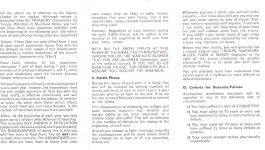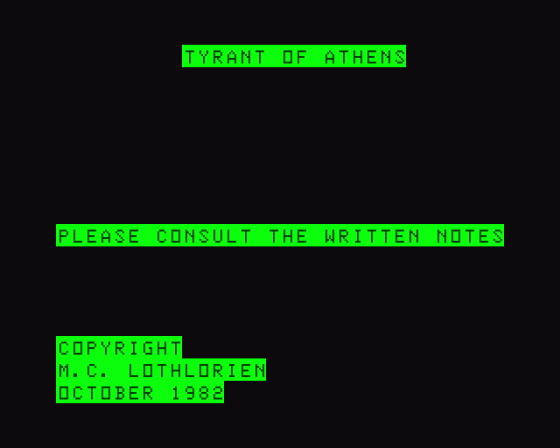
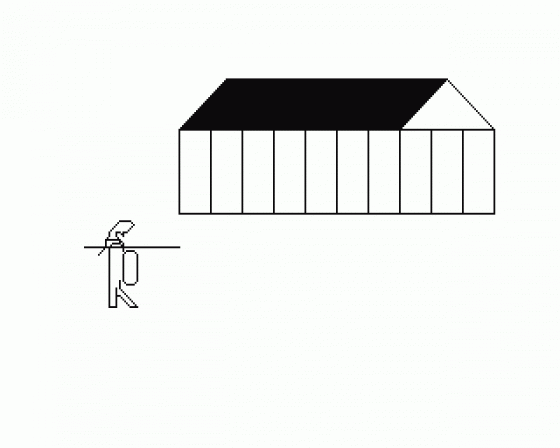
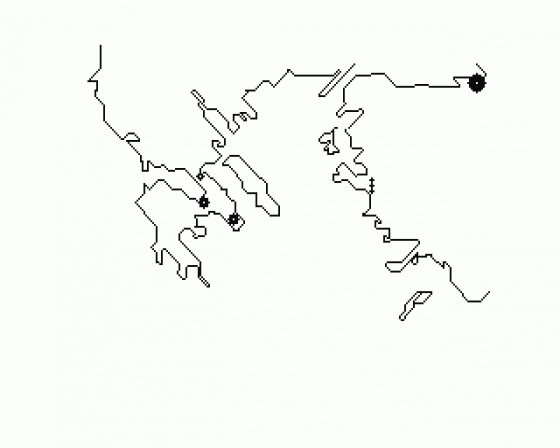

| Genre: | Strategy Game: Management |
| Publisher: | Lothlorien |
| Cover Art Language: | English |
| Machine Compatibility: | Dragon 32, Dragon 64 |
| Release: | Professionally released on Cassette |
| Available For: | Dragon 32, Sinclair ZX81 (Requires 16K Expansion) & Spectrum 16K |
| Compatible Emulators: | XRoar 0.33.1 (PC (Windows)) |
| Original Release Date: | 1st July 1983 |
| Original Release Price: | £9.95 |
| Market Valuation: | £6.89 (How Is This Calculated?) |
| Item Weight: | 64g |
| Box Type: | Cassette Single Plastic Black |
| Author(s): | M. C. Lothlorien |
Variant Items
There is 1 other item featuring this same game (that we know about!). Click any of them for their details.
Active Auctions
Closed Auctions
Buy It
Unfortunately no-one is currently selling this item.
Auction Price Watch
Worried you're being ripped off? Closing prices on eBay can help you decide what a reasonable price is for a particular item.
Full Instructions
Setting And Objective
The setting is Athens in the 5th century BC. You are beset by hostile armies and fleets from other powerful Greek City States as well as from the vast Persian Empire, and your objective is to survive long enough to turn Athens into the most feared state in the Mediterranean, by building warships, training troops and fighting battles by land and sea.
The Game: Opening Phases
At the beginning of the game (and of each subsequent year), there is a display which is self explanatory. You are asked to decide (by the use of the appropriate symbol, followed by a '?'): how many "Troops" (graphic soldier) you wish to train and how many "Warships" (graphic ship) and "Merchant Ships" (graphic ship with two masts) you wish to build during the course of the year.
You also have to decide how many "Allies" (if any), shown by a graphic horseman, you are prepared to grant Athenian Citizenship and how many "Units of Food", if any (indicated by the ear of corn + Imp or Exp) you wish to import/export during the year.
All the above are in addition to the figures shown in the display. Although money is deducted from the "Treasury" immediately for Troops, Warships and Merchant Ships, you will not have these extra resources available until the beginning of the following year (by which time all sorts of other things may have happened).
Troops...
These (but not your allies) from a part of your overall population figure. You will not be allowed to train troops if this would mean exceeding a certain proportion of the overall population (approximately 1/3rd).
Food...
Each member of the population consumes one unit of food during one year. Each member also produces between a half and one and a half units per year depending upon the harvest (except troops, who produce none).
The purchase price of food (and the selling price) varies each year. Income and expenditure from the sale and/or purchase of food (as with the food itself) is effective immediately and will therefore be indicated on the display. In addition to price, the other main factor which affects how much food you can import/export, is the number of merchant ships you have available.
Allies...
At the beginning of each year, you may grant up to half of your Allies Athenian Citizenship. This increases both Troops and Population (population increases slightly each year anyway). The disadvantage of doing this is that you will then have to feed them. You do not have to feed allies normally. The advantages are:
- that allies are more likely to desert than your own troops,
- they are likely to suffer heavier casualties than your own troops, and
- if the ratio of allies:troops exceeds a certain level, the allies may rebel.
Treasury...
Regardless of your balance during the year, 4,000 Talents will be added to the treasury at the beginning of each year from your silver mines.
With all of the above inputs at this phase of the game, the computer will inform you of the maximum number that you are allowed (dependent upon all the various factors). If you try to go over this figure, the computer will assure you require the maximum.
Battle Phase
During the course of each year, it is likely that you will be attacked by varying numbers of armies and fleets in turn. In each case it is your decision whether to fight or not and, if so, on the size of army/fleet you are prepared to commit to the battle.
The consequences of choosing not to fight will soon become apparent, but, whether you escape lightly or not, your reputation as a military leader will suffer. This will be reflected in the number of defeats in the display at the beginning of each year.
Should you choose to fight - and lose, naturally the consequences will be more severe than if you choose not to fight at all. e.g. casualties, tribute, etc.
Whenever you win a battle, you will still suffer casualties - but more allies will join you and you will gain some money by way of tribute. Also, your military reputation will improve. If you win a sea battle, you will lose some of your ships but you will capture some from the enemy. If you lose a sea battle, some of your ships will be sunk and some captured by the enemy. Losses may, therefore, be heavy.
Before and after battles, you will generally see a current tally of your Troops, Warships, Allies, Food and Money displayed to the right of the screen (indicated by graphic characters). This is to assist you with your decision-making.
You will probably learn from experience that certain types of army/fleet are more difficult to defeat than others.
Criteria For Success/Failure
Appropriate termination messages will be signalled in any of the following sets of circumstances:
- You have suffered a total of 3 disasters.
- You have ruled for ten years or more and have achieved 2.5 times as many victories as defeats.
- You have ruled for ten years or more and have suffered 2.5 times as many defeats as victories.
- Your overall strength makes you virtually invulnerable.
- Overall weakness makes it impossible for you to win.
- You rule for thirty years
Good luck with the game. 'E Tan E Epi Tas'
Note: The graphic characters in the opening phase, mentioned above, only appear in the Spectrum version.
Loading
CLOAD (ENTER)
Screen Designers
The following utilities are also available to allow you to edit the supplied screens of this game:
Cheats
Download
Report A Problem
We thank you from the bottom of our hearts if you report something wrong on our site. It's the only way we can fix any problems!
You are not currently logged in so your report will be anonymous.
Add Note
Release Country
Change the country to update it. Click outside of this pop-up to cancel.
Scan Of Selected Article
If you auction an item, it will no longer show in the regular shop section of the site.

